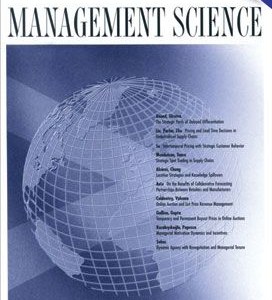
Kong, C., Granic, G., Lambert, N. and Teo, C.(. (2019). Judgment Error in Lottery Play: When the Hot-Hand Meets the Gambler's Fallacy Management Science, 66(2):844--862.
-
Affiliated authorsGeorg Granic, Lingwei Kong
-
Publication year2019
-
JournalManagement Science
We demonstrate that lottery markets can exhibit the 'hot-hand' phenomenon, in which past winning numbers tend to receive a greater share of the bets in future draws, even though past and future events are independent. This finding is surprising, as works by Clotfelter and Cook (1993) and Terrell (1994) have previously documented the presence of an opposite effect|the \gambler's fallacy'|in the U.S. lottery market. The current literature also suggests that the gambler's fallacy prevails when random numbers are generated by mechanical devices, such as in lottery games (e.g., Ayton and Fisher (2004), Burns and Corpus (2004), Caruso et al. (2010)). We use two sets of naturally occurring data to show that both the gambler's fallacy and the hot-hand fallacy can exist in different types of lottery games. We then run online experimental studies that mimic lottery games with one, two, or three winning numbers. Our experimental results show that the number of winning prizes impacts behavior. In particular, whereas a single-prize game leads to a strong presence of the gambler's fallacy, we observe a significant increase in hot-hand behavior in multiple-prize games with two or three winning numbers.